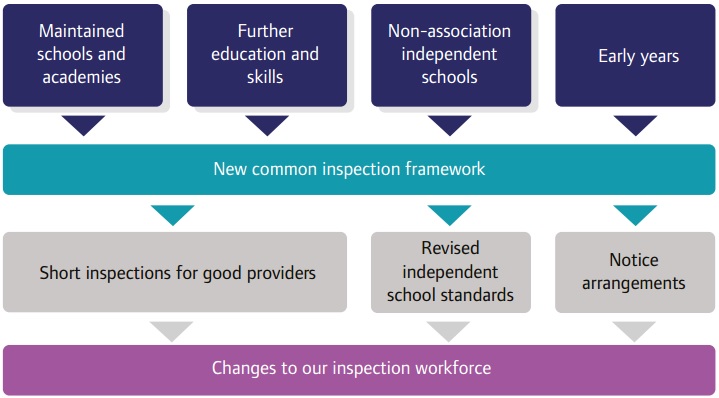With the new Ofsted Inspection Framework now in force, there are some simple steps SENCos can follow to demonstrate effective leadership, planning and processes. Evie Prysor-Jones explains.
Gareth Morewood has been SENCo at Priestnall School for almost 15 years, so has seen his fair share of Ofsted inspections, which he mentions ‘have changed a lot’.

‘I try and stay away from supporting SENCo colleagues in developing provision specifically for inspections,’ Gareth says. ‘It is always important to ensure SEND provision is appropriate for the young people and their families at your school or setting – the focus should be on getting that right and inspection outcomes will follow!’
Throughout the new Ofsted documentation and commentaries there is an increased emphasis on developing and sustaining an ambitious culture and vision. A culture that looks to promote independence and clear positive pathways into adulthood for all young people will include academic successes, but not at the expense of whole-child outcomes.
However, it is important to have an understanding of how the new arrangements will be undertaken; after all, if you are selling your house you tidy up and put on a fresh pot of coffee, if you are selling your car then you give it a wash etc.
Louise Colvin has been SENCo at Priory Rise Primary School for three years and has seen two Ofsted inspections in that time. During the webinar Louise explained how the inspections were organised, what questions she was asked and what helped her stay calm and make a great impression.
So whatever the year ahead holds, Gareth's advice is to keep to your plan, create appropriate provision for young people with SEND, maintain positive engagements with parents/carers and work on developing self-awareness and understanding to help individuals with their preparation for adulthood.
Having trouble accessing the resources above? Why not find out how Optimus supports schools with their CPD provision and request a demo of In-House Training and Knowledge Centre or take a free trial.